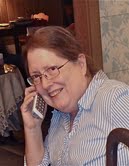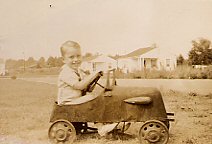Listen to Jim:
http://redclaydiary.com/mp3/thewannabebillyeckstine.mp3
or read on…
The Wanna-Be Billy Eckstine Bass-Baritone Life Plan Caper
I’m a barely-teenage superstar belting out my acapella rendition of “That Old Black Magic” in the privacy of the family bathtub, and my audience of none thinks it’s the best thing ever heard on planet earth.
That old black magic has me in its spell.
That old black magic that you weave so well.
Those icy fingers up and down my spine.
The same old witch-craft when your eyes meet mine.
The same old tingle that I feel inside
And then that elevator starts its ride *
The bathtub is private tonight because I have the house to myself for a while—a rarity because two parents and five kids usually live here.
This is back in the early 1950′s in Tuscaloosa, when pre-rock ‘n’ roll singers who make it to the top of their profession know how to enunciate and carry a tune and actually SELL lyrics to the listener. Once you hear the most dynamic of these performers, you are hooked for life.
Anyhow, I’m singing away in the bathtub, hoping against all hope that someday I’ll have a great voice that can belt out “That Old Black Magic” to beat the band, a voice that will make me the most popular kid on the block.
Among the best of the best of all pop singers is Billy Eckstine, whose powerful bass-baritone voice and sense of jazz-disciplined improvisation make him an icon alongside the great male vocalists of the day—Frank Sinatra, Ray Charles, Nat “King” Cole, Mel Torme, Bobby Troup, Tony Bennett, Cab Calloway, Bing Crosby, Big Joe Williams, Harry Belafonte, Louis Armstrong, Sammy Davis Jr., Steve Lawrence, John Lee Hooker, Fred Astaire. These guys are wonderful storytellers and back in these times they all get to be heard on local radio stations. This is long before music appreciation becomes segmented and self-limiting, long before a true Sinatra fan isn’t allowed to appreciate Hooker, long before it is unfashionable to pair Lawrence with Williams, or Satchmo with Mario Lanza.
In my family household, a great singer is a great singer, regardless of genre or age or race or style…so we listen to Hank Williams and George Beverly Shea and Dean Martin and Leonard Warren and Homer and Jethro equally, because we know each has a talent that must be embraced and appreciated.
That’s why I’m anxious to be home alone now and then so I can bellow out songs that bounce off the tiles and echo my temporarily enriched tones. Today, I’m emulating Billy Eckstine, whose incredible range and clarity make me feel I could make any woman within the sound of my voice swoon.
Funny thing about my particular generation is that we not only love our own music, but we love our parents’ and grandparents’ music as well. Our recordings span half a century—waltzes and bebop and scat and honky tonk and opera and polka and Cajun and country and gospel and schmaltz and jazz and blues and satire all combine according to the mood of the moment.
Later, when I become a disc jockey, I get to play all these forms of music, perhaps the last time any disc jockey is accorded this honor. As soon as the mid-1960′s approach, radio stations begin segmenting, specializing, becoming frozen in playlists. But for a while, I get to ply my trade in several worlds:
At a public radio station, I play classical and opera and ballet, along with show tunes, jazz, folk and international sounds from various exotic cultures. At commercial radio stations, I play “mood” music, rock ‘n’ roll, pop, comedy tunes, country gospel, ol’ time religion, barber shop quartets, upper-crust sacred works—you name it, I am exposed to it. Plus, I get to expose my audience to this wondrous variety of talent.
Nowadays, in the nervous present, I find it difficult to explain my taste in music. Hip hop fans know nothing about bluegrass, punk rockers don’t know who Howlin’ Wolf is, opera enthusiasts look at me funny when I mention that John Denver made recordings with Pavarotti. And heaven forfend if I suggest that Dennis Day also sang with Spike Jones.
So, the evergreen memory I hold close is one of pretending that I, like Billy Eckstine and his generation, might actually, for a coupla seconds at a time, sound great.
This love of understandable lyrics carries me into the future and influences what I later do for pleasure. After all that practice emulating male superstar singers and male superstar actors (Richard Burton, Orson Welles, Laurence Olivier, Dick Martin), I grow up knowing how to make clear what I am saying, how to express the meaning behind the words. It serves me in good stead when, now and again, I get to perform in public, teach, act, communicate the love of great books. I have Billy Eckstine and all his buddies to blame.
So, many moons after the Tuscaloosa bathtub performance days, I still sing at the top of my lungs in the shower—but only when no-one is around. After all, the worst thing anyone could tell me is that I may sound more like Don Knotts than Eckstine.
Darling down and down I go,
‘Round and ’round I go,
In a spin, loving the spin I’m in
Under that old black magic called love! *
Denial of unpleasant truths is something I’ve honed to a fine art. It keeps me going forward, keeps me from facing unwanted realities, keeps me performing for my admiring shower stall audience of none
© 2013 A.D. by Jim Reed
( Listen to the man himself: http://www.youtube.com/watch?v=SATmftj-Qbc )
(The above lyrics are verbatim from the original sheet music by Johnny Mercer and Harold Arlen. Lyrics found elsewhere on the internet are inaccurate–and mostly transcribed phonetically.)



